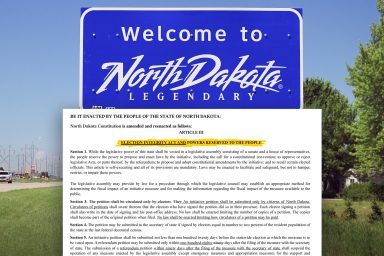As voters go to the polls today, disinformation campaigns are underway on social media.
During September and October, Twitter deleted 10,000 fake accounts that were encouraging people not to vote.
“I hear ICE agents will be at poling [sic] stations on election day, looking to deport illegals trying to vote,” one tweet from a since-banned account read.
Another tweet aimed to discourage Democratic men from voting because it would “drown out” female votes. Other efforts to discourage turnout included manipulated photos of long lines at polling places and false information about absentee ballot voting.
The tweets, which were designed to look like they came from Democrats, appeared to originate from within the United States.
Twitter did not initially catch the accounts and only deleted them after complaints from the Democratic Congressional Campaign Committee.
Online voter suppression accusations cross party lines in the other direction as well, however. Facebook recently removed a controversial ad from the North Dakota Democratic-NPL (an affiliate of the Democratic Party), which warned hunters that voting in North Dakota may result in a loss of out-of-state hunting licenses. The Associated Press labeled such a claim as false, and conservatives quickly blamed Democrats of attempting to reduce turnout of a reliably Republican demographic.
Another online voter suppression scam has popped up in Illinois. The FBI has “detected” a social media campaign designed to convince potential voters that they could cast a vote online, without showing up at a polling location. Most Americans cannot vote online in the US.
The reach of these disinformation campaigns is extensive. A recent study discovered that a whopping 80 percent of disinformation accounts that were active prior to the 2016 election are still active today, sending a combined one million tweets a day.
During congressional hearings, Facebook admitted that more than 10 million users had seen disinformation linked to Russian sources.
With so much online disinformation leading up to the midterms, voters may want to double-check everything they see on social media.



